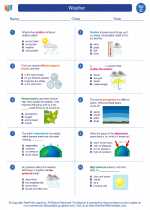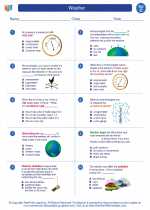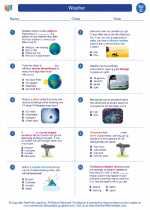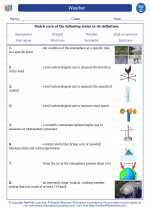Day
In astronomy, a day is the time it takes for a planet to rotate once on its axis. On Earth, this period is approximately 24 hours. The concept of a day is important for understanding various natural phenomena, including the cycle of light and darkness, the movement of celestial bodies, and the measurement of time.
Key Concepts
- Rotation: The Earth rotates on its axis, causing the cycle of day and night.
- Solar Day: The period of time between two consecutive crossings of the sun over a specific meridian.
- Sidereal Day: The time it takes for a specific star to appear at the same point in the sky, measured relative to the stars rather than the sun.
- Equator: The imaginary line around the Earth's surface equidistant from the North and South Poles, where the length of a day remains relatively constant throughout the year.
Study Guide
Use the following questions to guide your study of the topic:
- What causes the cycle of day and night on Earth?
- How does the length of a day vary at different latitudes?
- What is the difference between a solar day and a sidereal day?
- How do different cultures and civilizations measure and divide the day?
- What are some of the effects of the lengthening and shortening of days during the changing seasons?
By exploring these questions, you can gain a deeper understanding of the concept of a day and its significance in the natural world.
.◂Science Worksheets and Study Guides Third Grade. Weather
Study Guide Weather
Weather  Worksheet/Answer key
Worksheet/Answer key Weather
Weather  Worksheet/Answer key
Worksheet/Answer key Weather
Weather  Worksheet/Answer key
Worksheet/Answer key Weather
Weather  Vocabulary/Answer key
Vocabulary/Answer key Weather
Weather  Vocabulary/Answer key
Vocabulary/Answer key Weather
Weather 

 Worksheet/Answer key
Worksheet/Answer key
 Worksheet/Answer key
Worksheet/Answer key
 Worksheet/Answer key
Worksheet/Answer key
 Vocabulary/Answer key
Vocabulary/Answer key
 Vocabulary/Answer key
Vocabulary/Answer key

The resources above cover the following skills:
EARTH AND SPACE SCIENCE (NGSS)
Earth’s Systems
Students who demonstrate understanding can:
Represent data in tables and graphical displays to describe typical weather conditions expected during a particular season.